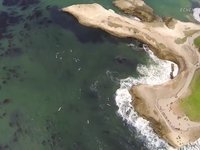This is your brain on Nature
Geege Schuman stashed this in Out of Doors
Stashed in: Outdoors, Brain, Awesome, Downtime, National Geographic
On the third day of a camping trip in the wild canyons near Bluff, Utah, Strayer is mixing up an enormous iron kettle of chicken enchilada pie while explaining what he calls the “three-day effect” to 22 psychology students. Our brains, he says, aren’t tireless three-pound machines; they’re easily fatigued. When we slow down, stop the busywork, and take in beautiful natural surroundings, not only do we feel restored, but our mental performance improves too. Strayer has demonstrated as much with a group of Outward Bound participants, who performed 50 percent better on creative problem-solving tasks after three days ofwilderness backpacking. <>The three-day effect, he says, is a kind of cleaning of the mental windshield that occurs when we’ve been immersed in nature long enough. On this trip he’s hoping to catch it in action, by hooking his students—and me—to a portable EEG, a device that records brain waves.
On the third day my senses recalibrate—I smell things and hear things I didn’t before,” Strayer says. The early evening sun has saturated the red canyon walls; the group is mellow and hungry in that satisfying, campout way. Strayer, in a rumpled T-shirt and with a slight sunburn, is definitely looking relaxed. “I’m more in tune with nature,” he goes on. “If you can have the experience of being in the moment for two or three days, it seems to produce a difference in qualitative thinking.”
Strayer’s hypothesis is that being in nature allows the prefrontal cortex, the brain’s command center, to dial down and rest, like an overused muscle. If he’s right, the EEG will show less energy coming from “midline frontal theta waves”—a measure of conceptual thinking and sustained attention. He’ll compare our brain waves with those of similar volunteers who are sitting in a lab or hanging out at a parking lot in downtown Salt Lake City.
While the enchiladas are cooking, Strayer’s graduate students tuck my head into a sort of bathing cap with 12 electrodes embedded in it. They suction-cup another 6 electrodes to my face. Wires sprouting from them will send my brain’s electrical signals to a recorder for later analysis. Feeling like a beached sea urchin, I walk carefully to a grassy bank along the San Juan River for ten minutes of restful contemplation. I’m supposed to think of nothing in particular, just watch the wide, sparkling river flow gently by. I haven’t looked at a computer or cell phone in days. It’s easy to forget for a few moments that I ever had them.
So spending time outside is like an extended sleep for cleaning the brain?
It seems to both refresh and awaken the brain. :)
Being outside and sleeping seem to be the keys to brain happiness.











6:43 AM Dec 27 2015